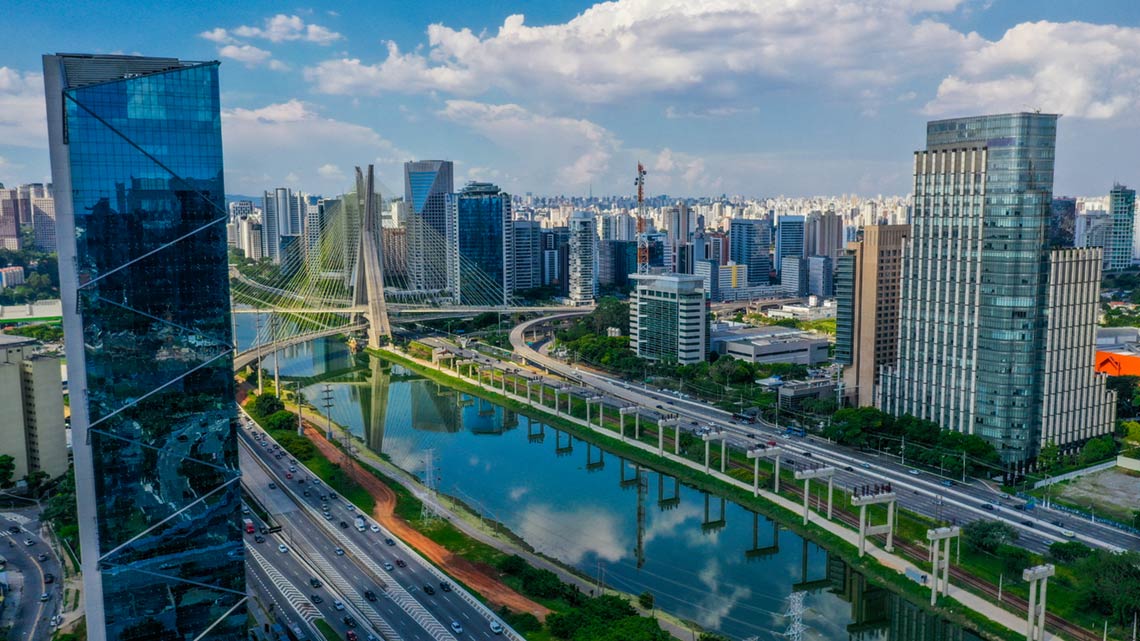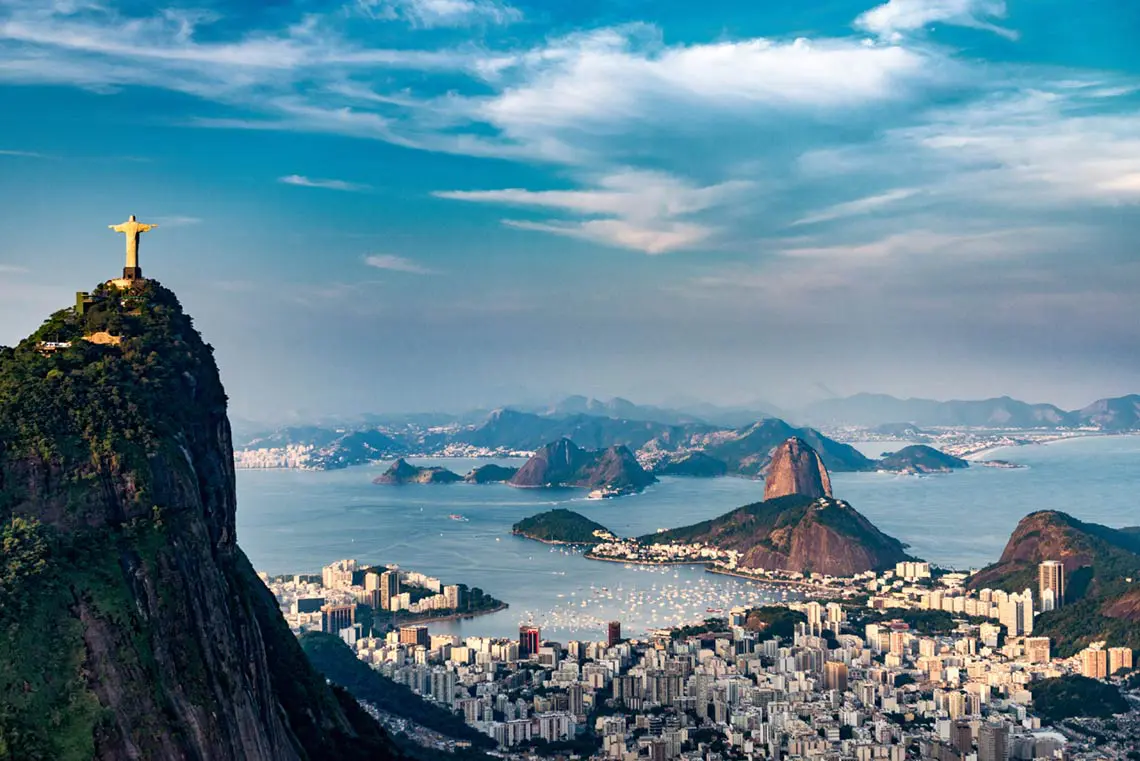Market Research in Brazil

The emerging market of Brazil, which comprises half the population of South America, is considered to be one of the “BRIC” large, high-growth emerging markets, including China, Russia, and India.
Brazil is not just the largest country in South America but also a significant player in the global economy. With its rich natural resources, growing industries, and a diverse population of over 200 million people, it presents several business opportunities.
However, navigating the complexities of the Brazilian market requires a deep understanding – and this is where market research in Brazil comes into play. Given the country’s vast geographical expanse, cultural diversity, and ever-evolving consumer behavior, gaining insights through research becomes a fundamental step for businesses aiming to succeed in the Brazilian market.
What Is Market Research in Brazil?
One of the main purposes of market research in Brazil is to bridge the knowledge gap for foreign companies looking to establish themselves in a new and unfamiliar market. It provides detailed insights into consumer preferences, regional differences, and the overall economic climate, helping businesses make strategic decisions about entry, marketing, and product adaptation.
Market research also helps companies identify emerging trends, understand potential market gaps, and develop strategies to meet customer expectations. In Brazil, this means adapting to sophisticated urban markets and traditional rural consumers.
Why Is It Important to Conduct Market Research in Brazil?
Brazil’s market necessitates a thorough understanding of successful business endeavors because it boasts a vast population with diverse ethnicities, cultures, and socio-economic backgrounds. Brazil’s size means that it encompasses various climates, cultures, and economic activities. What works in the urban landscapes of São Paulo might not resonate in the northern regions or the vast interiors.
Brazil has a reputation for its complex regulatory and business environment. Understanding these intricacies through market research can help businesses navigate smoothly. Moreover, the Brazilian consumer has undergone a significant transformation over the years. Keeping pace with their changing tastes, preferences, and buying behaviors is key to staying relevant.
So… What Are the Benefits of Market Research in Brazil?
Market research in Brazil not only aids businesses in navigating the challenges but also unlocks numerous advantages that can set the trajectory for success. Here are some of the noteworthy benefits:
• Informed Decision-Making: Comprehensive market research in Brazil provides businesses with actionable insights, enabling them to make decisions based on data rather than assumptions. By understanding market dynamics, potential challenges, and consumer behavior, businesses can devise strategies that minimize risks and optimize opportunities.
• Product and Service Optimization: Through market research in Brazil, businesses can gather feedback and understand gaps in their offerings, leading to continuous improvement and innovation. With in-depth insights about target demographics, preferences, and buying patterns, businesses can craft products and marketing campaigns that resonate with the Brazilian audience.
• Enhanced Brand Positioning: Gaining a deep understanding of the market helps brands position themselves effectively, differentiating from competitors and aligning with consumer values. By being attuned to the needs and desires of the Brazilian consumer, businesses can foster stronger, long-lasting relationships, driving loyalty and repeat business.
Key Industries in Brazil

Brazil has a diversified economy with its vast natural resources and strategic position in South America. Here are some of the vital sectors underpinning market research in Brazil:
• Agriculture: Brazil is a global agricultural powerhouse, being a leading exporter of products such as coffee, soybeans, beef, sugarcane, and orange juice. The country’s vast land area and favorable climate make it ideal for various crops and livestock.
• Mining: Brazil is rich in minerals, including iron ore, bauxite, and gold. The country has one of the world’s largest mining sectors, providing critical raw materials for global industries.
• Aviation: Brazil’s Embraer is a leading player in the global aviation industry, specializing in producing regional jets.
• Financial Services: Sao Paulo is often dubbed as the financial hub of South America, with a strong presence of banks, investment firms, and financial institutions.
• Technology and Startups: Brazil’s tech scene is burgeoning, with startups in fintech, edtech, health tech, and e-commerce witnessing substantial growth.
• Tourism and Hospitality: From the vibrant Rio de Janeiro and historical Salvador to the Amazon rainforest and Pantanal wetlands, Brazil is a magnet for tourists.
• Renewable Energy: Brazil is a global leader in biofuels, especially ethanol from sugarcane. Additionally, there’s growing investment in wind and solar energy sectors.
These are just some of the many growing industries in Brazil. The diversity and potential of these sectors make market research in Brazil a valuable tool for businesses aiming to penetrate or expand within them.
The Strength of Brazil’s Economy
Brazil is characterized by a higher rate of growth and economic development than developed economies. China, the US and the European Union are among Brazil’s largest trading partners.
Brazil, slightly smaller than the US, is the biggest country in Latin America and one of the world’s top 10 economies. The capital of the federation of states that comprise Brazil is Brasilia. Portuguese, African, German, Italian, Japanese, Spanish, and Amerindian peoples are included in the variety of ethnic groups that make up Brazil’s population of over 190 million.
Main Tourist Attractions and Cities in Brazil
Brazil is a top tourist destination because of its vibrant culture, diverse ecosystems, and rich history. Consequently, when diving into market research in Brazil related to tourism, it’s critical to acknowledge the following key attractions and cities:
• Rio de Janeiro: Famous for its iconic Christ the Redeemer statue, Sugarloaf Mountain, and the lively Copacabana and Ipanema beaches. The city also hosts the world-renowned Rio Carnival, a celebration of music, dance, and vibrant costumes.
• Amazon Rainforest: Encompassing more than half of the planet’s remaining rainforests, the Amazon is home to a vast array of wildlife and indigenous tribes. The city of Manaus serves as a gateway to jungle lodges and river cruises.
• Iguaçu Falls: Situated on the border between Brazil and Argentina, these massive waterfalls are one of the most impressive natural wonders in the world.
• São Paulo: The bustling metropolis known for its skyscrapers, vibrant nightlife, and diverse culinary scene.
• Brasília: Oscar Niemeyer designed the nation’s capital, which is a UNESCO World Heritage site due to its modernist architecture.
Economic Hot Spots in Brazil
The most populous cities in the country’s central region are Rio de Janeiro, Sao Paulo, and Belo Horizonte.
A vast majority of Brazilians live in urban areas, following a brisk urbanization period over the past two decades. This urbanization has helped to drive the massive economic development Brazil has undergone in the past few years.
Brazil has attracted major interest in almost all areas of its economy and infrastructure. Its main imports are electrical and transport equipment, machinery, oil, chemical equipment, electronics and automotive parts. Other industries in high demand in the Brazilian economy are software, information technology, and petroleum.
Internet and mobile penetration has risen steadily over the past few years.
This has benefitted various industries, such as retail, e-commerce, Education, and IT. The information technology sector accounts for a major segment of Brazil’s GDP.
Located 60 miles north of Sao Paulo, Campinas has a large concentration of high-tech companies, research institutes, universities, and tech parks and is essentially considered Brazil’s “Silicon Valley.” The northern city of Recife also has leading tech parks, as do Porto Alegre, Sao Paulo, and Curitiba to the south.
Market Research in Brazil: Opportunities

The diverse and rapidly changing landscape of Brazil provides businesses with several opportunities – and businesses should recognize these potential areas:
• E-commerce Expansion: With the exponential growth of online shopping and digital platforms, businesses can explore consumers’ online behaviors, preferences, and pain points to offer tailored online experiences in Brazil’s main cities.
• Sustainable and Eco-friendly Solutions: As consumers become more environmentally conscious, there’s a demand for sustainable products and eco-friendly solutions. Market research in Brazil can help businesses align with these preferences.
• Health and Wellness: With an increasing focus on health, fitness, and well-being, businesses in the healthcare, fitness, organic food, and wellness sectors have the potential to thrive.
• Financial Services and Fintech: Given the sizable unbanked population and the rise of digital financial solutions, there’s an opportunity for fintech innovations and financial inclusion initiatives.
• Tourism and Experience Economy: Brazil’s rich cultural and natural attractions offer tourism opportunities. Market research in Brazil can help design unique and immersive experiences for travelers in unexplored attractions.
• Real Estate and Infrastructure: With urbanization and infrastructural development, market research can guide businesses in identifying potential areas for real estate projects, urban planning, and infrastructure enhancements.
Market Research in Brazil: Challenges
While Brazil offers a wealth of opportunities, businesses should be aware of the challenges that come with navigating such a vast and diverse market. Delving into market research in Brazil can help mitigate some of these challenges:
• Economic Volatility: Brazil’s economy has seen periods of boom and bust. Exchange rate fluctuations, inflation rates, and fiscal policies can affect business operations.
• Complex Tax System: Brazil’s tax structure is known for its complexity, with multiple taxes at federal, state, and municipal levels. Understanding and complying with these regulations can be challenging.
• Cultural and Regional Differences: Brazil is a vast country with distinct regional cultures, preferences, and consumer behaviors. What works in one region might not in another.
• Infrastructure Gaps: While major cities are well-developed, some areas still lack essential infrastructure, affecting logistics and distribution.
• Bureaucracy: Starting and operating a business in Brazil can involve navigating through layers of bureaucracy, which can be time-consuming.
• Language Barrier: While many business professionals speak English, Portuguese is the predominant language. Effective communication and localization are crucial.
• Intellectual Property Concerns: There have been instances of IP rights violations in Brazil. Protecting patents, trademarks, and copyrights is essential for businesses, especially in the tech and creative sectors.
• Security Concerns: In certain regions, security can be a concern, impacting both business operations and employee safety.
How SIS International’s Market Research in Brazil Helps Businesses

Market research is a cornerstone of successful business operations in Brazil. At SIS International, we provide comprehensive insights to help businesses make informed decisions in this diverse and evolving market.
Tailored Market Insights
SIS International’s market research in Brazil offers in-depth analysis of consumer behavior, market trends, and competitive dynamics. We leverage both qualitative and quantitative research to provide you with actionable insights that align with your business goals. By understanding local market nuances, we help you design effective strategies that resonate with Brazilian consumers.
Navigating Regulatory Complexity
Our experts are well-versed in the intricacies of Brazil’s regulatory landscape. We guide businesses through the complexities of local laws, tax regulations, and compliance requirements, ensuring that your operations run smoothly and adhere to all necessary standards. With our support, you can focus on growth while we handle the regulatory challenges.
Localized Strategies for Success
We recognize that Brazil is not a one-size-fits-all market. Our market research helps businesses create region-specific strategies that cater to the unique demands of different areas in the country. Whether you’re looking to expand into São Paulo, the Amazon region, or the Northeast, SIS provides the insights needed for targeted, localized success.
About Market Research in Brazil
SIS International offers Quantitative, Qualitative, and Strategy Research. We provide data, tools, strategies, reports, and insights for decision-making. We also conduct interviews, surveys, focus groups, and other Market Research methods and approaches. Contact us for your next Market Research project.


